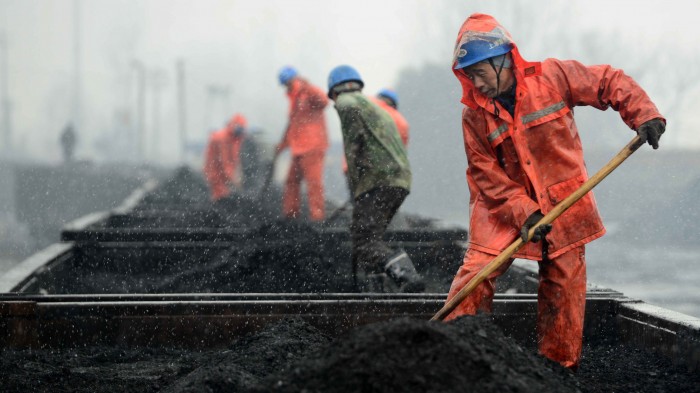Protests Rise as China Lays Off Millions of Coal Workers
China is finally making progress in curing its coal addiction, but the withdrawal symptoms are starting to hit some of its most vulnerable citizens. The government said on Monday that 1.8 million workers in the coal and steel industries will be laid off this year, representing more than 10 percent of the total steel workforce and fully one-fifth of the workers in the coal industry, according to economic research firm IHS Insights. The central government says it will invest more than $15 billion in retraining and job placement for laid-off workers.
The damage will be most keenly felt in places like Shanxi Province, where I traveled extensively for my book Coal Wars. Many sizable cities there are totally dependent on the coal economy, and the job losses will have ripple effects that could cause massive social unrest. Already coal miners in Anyuan, the scene of the Great Strike of 1922 that helped launch Mao and the Communist Party on the road to power, are turning out by the hundreds to protest layoffs and pay cuts, the Washington Post reported.
Coal use was down nearly 4 percent in 2015 from the year before, a slowdown being driven both by market forces and by Beijing’s determination to curb toxic air pollution and shift to cleaner sources of power. Already, China is the world’s largest producer of wind power, and a massive push in wind, solar, and nuclear power is planned for the next 10 years.

(Read more: Reuters, Washington Post, “Witnessing Climate Change Everywhere”)
Keep Reading
Most Popular
Large language models can do jaw-dropping things. But nobody knows exactly why.
And that's a problem. Figuring it out is one of the biggest scientific puzzles of our time and a crucial step towards controlling more powerful future models.
How scientists traced a mysterious covid case back to six toilets
When wastewater surveillance turns into a hunt for a single infected individual, the ethics get tricky.
The problem with plug-in hybrids? Their drivers.
Plug-in hybrids are often sold as a transition to EVs, but new data from Europe shows we’re still underestimating the emissions they produce.
Stay connected
Get the latest updates from
MIT Technology Review
Discover special offers, top stories, upcoming events, and more.